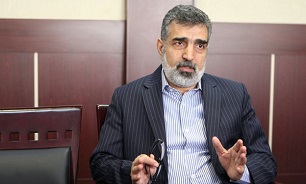Disloyal Europeans Should Not Speak of Trigger Mechanism
 In a statement last Saturday, France, Germany and the United Kingdom welcomed the decision by 6 other European countries to join the EU financial mechanism for trade with Iran to bypass US sanctions known as the INSTEX, while reaffirming their readiness to consider all mechanisms in the JCPOA, including the dispute resolution mechanism, to resolve the issues related to Iran’s implementation of its JCPOA commitments.
In a statement last Saturday, France, Germany and the United Kingdom welcomed the decision by 6 other European countries to join the EU financial mechanism for trade with Iran to bypass US sanctions known as the INSTEX, while reaffirming their readiness to consider all mechanisms in the JCPOA, including the dispute resolution mechanism, to resolve the issues related to Iran’s implementation of its JCPOA commitments.
The snapback or trigger mechanism incorporated in the JCPOA is a tool that allows the old United Nations sanctions to be re-imposed on Iran without a vote on the Council.
“Using trigger mechanism is legally improper because the Europeans have failed to fulfill their obligations [under the nuclear deal],” Kamalvandi said in reference to the E3 statement.
"On the one hand, Iran has not pulled out of the framework of the JCPOA. As such, there is no reason to implement this mechanism,” he added.
Kamalvandi further pointed out that taking four nuclear steps so far have been based on appropriate planning, adding that if needed, the Iranian nuclear agency will act based on any decision by relevant authorities, including the Supreme National Security Council (SNSC).
In relevant remarks on Tuesday, Iranian Deputy Foreign Minister for Political Affairs Seyed Abbas Araqchi said that his country’s reduction of nuclear commitments started a year after exercising patience in the face of the US withdrawal from the nuclear deal and Europeans’ inaction and non-compliance with their undertakings.
“Our goal is not to exit the JCPOA (the Joint Comprehensive Plan of Action), but we have decided to reduce our commitments after an entire year of exercising patience and witnessing non-compliance on the part of the European countries,” Araqchi said in a meeting with Japanese Foreign Minister Toshimitsu Motegi in Tokyo.
He added that Iran would return to the JCPOA commitments if sanctions against the country are lifted and it is allowed to benefit from the deal.
The sanctions were re-imposed by the US on Iran after Washington unilaterally abandoned the Iran deal in May 2018.
In response, Tehran has so far rowed back on its nuclear commitments four times in compliance with Articles 26 and 36 of the JCPOA, but stressed that its retaliatory measures will be reversible as soon as the European signatories — France, Britain and Germany — find practical ways to shield mutual trade from the US sanctions.
As a first step, Iran increased its enriched uranium stockpile to beyond the 300 kilograms set by the JCPOA.
In the second step, Tehran began enriching uranium to purity rates beyond the JCPOA limit of 3.76 percent.
In the third phase, after the Europeans failed to meet a 60-day deadline to meet Iran’s demands and fulfill their commitments under the deal, Iran started up advanced centrifuges to boost the country’s stockpile of enriched uranium and activated 20 IR-4 and 20 IR-6 centrifuges for research and development purposes.
Last month, Iran began injecting gas into centrifuges at the Fordow plant as part of its fourth step away from the JCPOA under the supervision of the International Atomic Energy Agency.
Message end/
